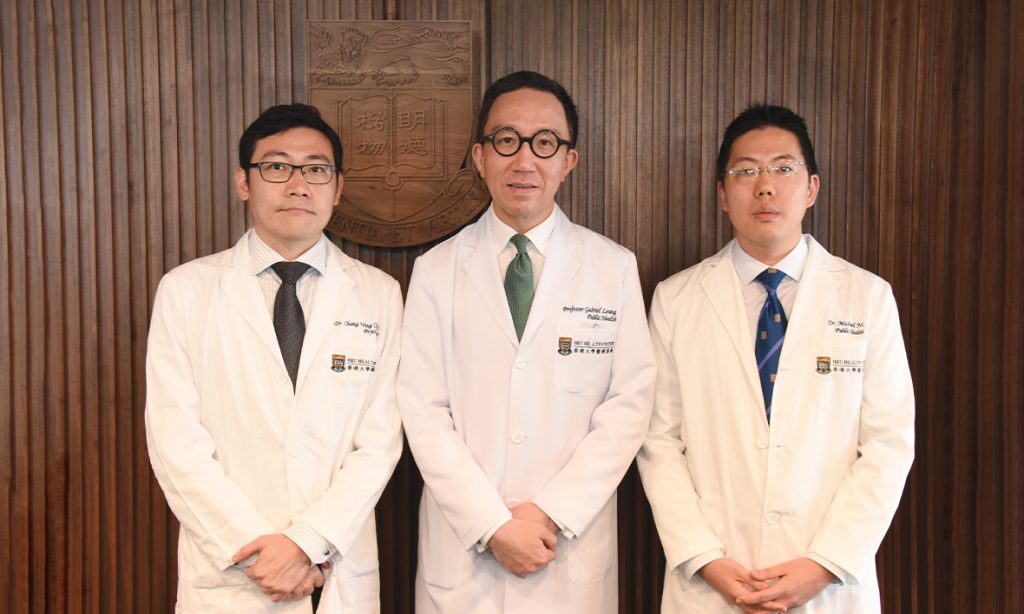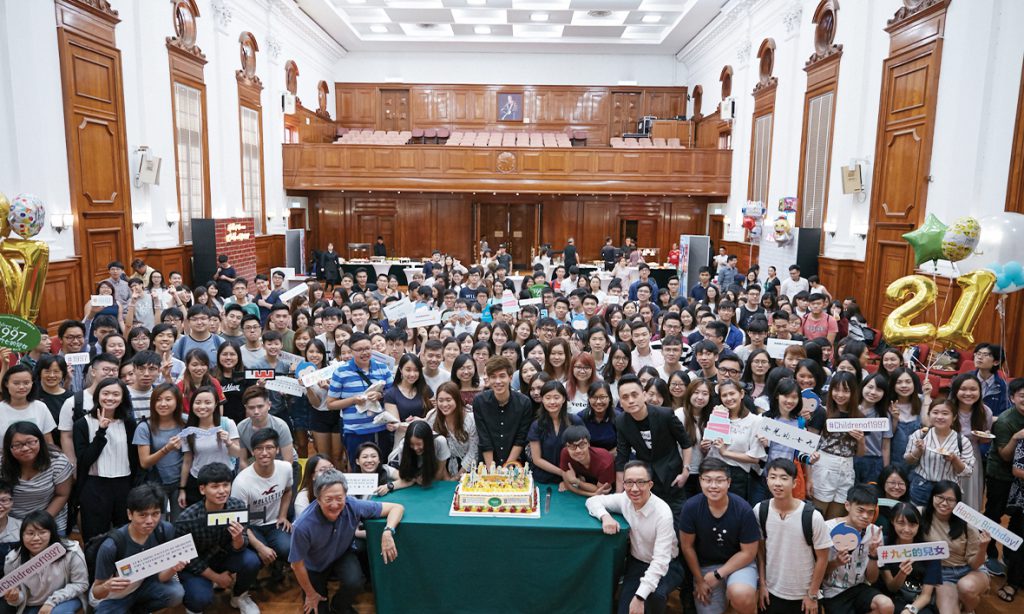November 2019 | Volume 21 No. 1
Street-Level Studies Take the Pulse of Hong Kong
Public health studies are valuable for understanding population profiles and spotting emerging trends. But in order to be useful, there needs to be quality data – and lots of it. That takes both money and laborious collection work. Fortunately, HKU’s School of Public Health has had admirable success in securing resources for this work that will have benefits for generations to come.
The School works on cohort studies that involve thousands of people and use scientific methods to collect and analyse the data. One of their most striking projects has been the Family Cohort Study, conducted as part of a HK$250 million project on health, happiness and family harmony that was funded by the Hong Kong Jockey Club Charities Trust. Half the money was used to collect baseline data from 20,000 households for the cohort study (the other half went to action programmes and participatory research with the community).
More than 100 researchers and staff paid two visits to the households between 2009 and 2013. Each member of the household was interviewed using an array of validated questionnaires and each interview took at least one hour. The researchers also brought validated measuring tools to take biometric data such as height and weight. “It was like doing a census,” said Professor Gabriel Leung, Dean of Medicine and Helen and Francis Zimmern Professor in Population Health, who leads the Family Cohort Study with Dr Michael Ni, Clinical Assistant Professor of Public Health.
The Jockey Club funding ended in 2013, but since then the scholars have secured research grants and other funds to continue to monitor this population through telephone surveys. While much of the data is still being teased apart and subject to peer review, they recently identified a trend that was alarming enough for them to go to the media with the results, given the public health implications.

The Family Cohort Study research team – (from left) Dr Chang Wing-chung, Clinical Associate Professor of the Department of Psychiatry; Professor Gabriel Leung, Dean of Medicine and Chair Professor of Public Health Medicine; and Dr Michael Ni, Clinical Assistant Professor of the School of Public Health.
Depression trend
Their surveys found that the recent anti-extradition bill protests in Hong Kong coincided with a sharp increase in mental health problems: 9.1 per cent of respondents reported symptoms of probable depression and 4.6 per cent of suicide ideation (in fact, several suicides have been linked to the movement).
This increase was significantly higher than the baseline established in 2011, when probable depression was 1.3 per cent among respondents and suicide ideation 1.1 per cent. During 2014’s Occupy Central movement, the figures rose to 5.3 per cent and 3.6 per cent, respectively.
“When we saw the recent results, we felt a duty to alert society. We truly have a mental health epidemic when one in 10 people are affected,” said Professor Leung. “And they were affected regardless of whether they participated in the protests or were part of more aggressive groups, or perhaps took no side. The prevalence of probable depression was higher among both men and women and, most importantly, in all ages above 20 years old.
“The surprising thing is that older folks were the most affected, especially those who were less educated, less financially well-of, and men generally. Is this because they are not venting their feelings, or worrying about younger family members? Is it because they have witnessed possible consequences of such large social movements in their own lifetime? We don’t know. All we can do as scientists is to assess, document and report in an open, transparent, robust and dispassionate manner.”
‘In vivo, in situ, in daily life’
Professor Leung also noted that while family conflicts diminished after Occupy Central, symptoms of probable depression continued to increase, affecting 6.1 per cent of respondents in a follow-up survey in 2017. The team is continuing to conduct additional waves of surveys to track the ongoing effects of the recent social movement for their academic research.
Professor Leung said these findings illustrate the importance of cohort studies in identifying problems “in vivo, in situ, as people live their lives in their natural environment.” He also leads the ‘Children of 1997’ Birth Cohort Study, tracking 9,000 children born in April and May of that year. He is involved at various levels in the Department of Health Elderly Health Service Cohort tracking routine health data from 150,000 participants, the Guangzhou Biobank Cohort Study tracking 30,000 participants aged 55 and over, and the new Born in Guangzhou Cohort Study which aims to recruit 100,000 participants.
“Unlike laboratory experiments, the beauty and the headache at once of population research is you cannot control for extraneous factors nearly as well,” he said. “My job is to record observations which you will not see in the laboratory unless you’re looking for them, and to explain the inexplicable so bench scientists can work out the precise mechanisms. The results are real and directly applicable, and they have the greatest impact because they concern saving lives, millions at a time.”

Professor Gabriel Leung leads the ‘Children of 1997’ Birth Cohort Study, tracking 9,000 children born in April and May of that year. A party for the participants was held in 2018 to celebrate their 21st birthday.
When we saw the recent results, we felt a duty to alert society. We truly have a mental health epidemic when one in 10 people are affected.

PROFESSOR GABRIEL LEUNG
Professor Leung’s portrait by Pan Shiyi Photography

